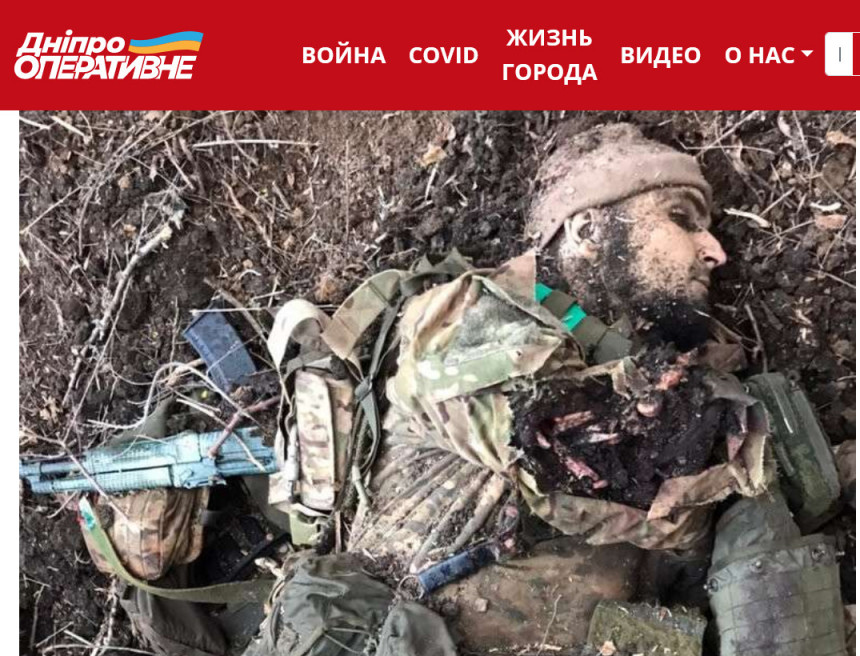Putin is now sending Libyan mercenaries to fight

On the Ukrainian front, about halfway between Donetsk and Luhansk, there is a town called Popasna. A few days ago, the Ukrainians managed to destroy another assault group of Russian forces there. This time it turned out to belong to the private military company Wagner, and what surprised the Ukrainian soldiers the most - the fighters had been recruited in Libya.
According to Dnipro Operativne, the eastern soldiers were well equipped, wearing high-quality armored vests and Lowa boots. Helmets, optics, thermal imaging cameras - everything as it should be. But in their pockets - dinars, dollars, rubles and fancy phones. Now these mercenaries are dead. According to the British Parliament, Russia has deployed a total of 8,000 Wagner mercenaries in the war in Ukraine. This private military company is renowned for its ruthlessness and combat skills. It is used in places and for tasks that are not suitable for the regular armed forces of the Russian Federation for political reasons. For various provocations, for assassinations.
Agency for military special operations
Basically, Wagner is a team of a professional little green men - a full-service military agency that also played a role during Russia's first invasion of Ukraine. From 2014 to 2016, they fought against the Ukrainian army in the Luhansk and Donetsk regions alongside Russian-backed local separatists. In Kremlin-friendly circles, the use of the Wagnerites has also been considered to rock the situation in other countries, including Latvia. Neatkarīgā reported on this private group even before the second Russian attack in "Scenario for Latvia with the participation of Russian mercenaries." Formally, Wagner is a security company registered outside Russia. It is owned by a sanctioned businessman, Yevgeny Prigozhin, who is known as Putin's chef because he also owns a catering business. But in reality, Wagner is doing the Kremlin's bidding, and it does not matter how the company is legally constituted.
3,000 dead Wagnerites
They fight wherever they are sent, whether it is the Central African Republic, Mali, Syria or, as now, Ukraine. But unlike the first invasion of Ukraine, the Wagner mercenaries are not doing so well now, perhaps because the Russian and Chechen ranks have been joined by new recruits from Libya. Greedy, murderous, but with no idea where they are, who they are fighting and, above all, what they are fighting for. Of the 8,000 mercenaries sent to Ukraine, 3,000 have fallen, and that is an enormous loss of life for what is considered an elite army. The British report that among the dead are also the 200 fighters who were sent to Kyiv to carry out assassinations against the Ukrainian political leadership before the Russian re-invasion. However, this Wagnerite mission failed.
On the Ukrainian side, the use of the Wagner is seen as a sign of the lack of manpower in the ranks of the occupiers. According to Dnipro Operativne the Russian army leadership initially used local forces mobilized in the Donbas in the frontal attacks against Ukrainian forces, then regular forces, and when the Ukrainians thinned them out, Libyan mercenaries entered the fray, adding significantly to the pile of corpses on the Russian side.
Pathological killers
The Wagner private army and its losses have recently been discussed in the British Parliament - in the context of sanctions. It is not enough that Prigozhin, the formal owner of this army, has been sanctioned. The Wagner Group's enlisted men also need to be sanctioned so that they cannot spend their time off from fighting in European resorts with their families. Christo Grozev, Executive Director of the Bellingcat research group, gave British MPs an insight into who the Wagnerites really are. He estimates that 10 to 15% of these fighters are sociopaths with a pathological propensity to kill. Not just adrenaline junkies, but bloodthirsty. And the brutal killings of civilians in Bucha have the same Wagnerite fingerprints as was seen in Syria. The activities of this private army must therefore be watched carefully.
There is another possible justification for the use of the Wagnerites in Ukraine. The deaths of these fighters don't have to be counted in Russia's losses, since the Wagner Group does not formally represent the Russian Federation. If they die, as they did a few days ago in Popasna, it is their own fault. In the statistics collected by the Ukrainians, the neutralized Libyans will be included, but not in the Kremlin's losses. This is what the Wagnerites are paid for, this is why their commanders are awarded the Gold Star medal of the hero of the Russian Federation.
